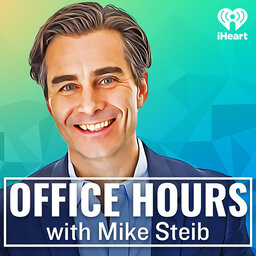Mariam Naficy, Founder of Minted.com, Managing Partner of Heretic Ventures: Supporting Artists and Creators
🎙️ On launching the first major online cosmetics company, despite being told repeatedly “women won’t shop online”
🎙️ How Minted.com unlocked the creative genius of thousands of designers around the world
🎙️ Why the more we live online, the more we value art and handcrafted objects
🎙️ What it’s like to raise $400 million … and counting
This episode is for anyone who enjoys entrepreneurship, art, and the power of perseverance!
Explore More
⁉️ Exclusive tease: Mariam’s new venture, arcade.ai, launching soon!
🤘 Mike's favorite art picks every week, recommended books for leaders, and more: mikesteib.com.
🎉 Up next: More from the world of art and design with another one of my favorite CEOs. Submit your questions at 213.419.0596.
In 1 playlist(s)
Office Hours with Mike Steib
Mike sits down with the world’s most important Chief Executives to answer your most pressing questio…Social links
Follow podcast
Recent clips

Sarah Friar, CEO of Nextdoor: The Future of Local
35:43

Carolyn Starrett, CEO of Flatiron Health: Curing Cancer
33:42

David Rosenblatt, CEO of 1stDibs: Only in New York
34:33
 Office Hours with Mike Steib
Office Hours with Mike Steib